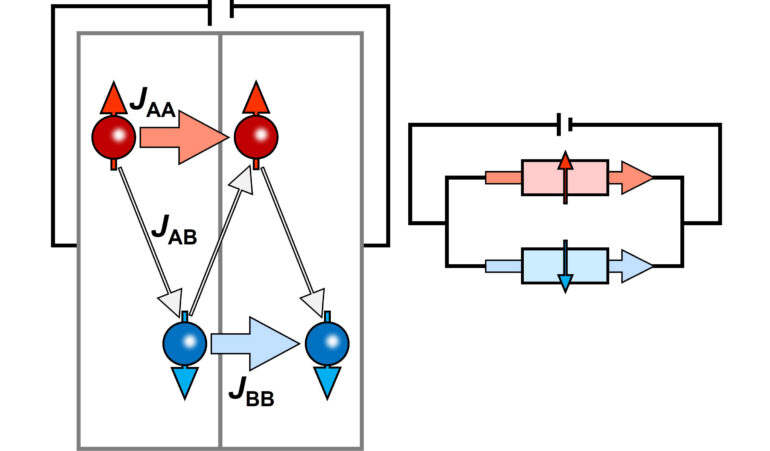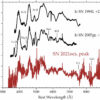by Shao Dingfu, Zhao Weiwei, Hefei Institutes of Physical Science, Chinese Academy of Sciences
A group of physicists at Hefei Institutes of Physical Science (HFIPS) of Chinese Academy of Sciences (CAS) revealed a secret of antiferromagnets, which could accelerate spintronics, a next-gen data storage and processing technology for overcoming the bottleneck of modern digital electronics.
This finding was reported in Physical Review Letters.
Spintronics is a vigorously developing field employing the spin of electrons within magnetic materials to encode information. Spin-polarized electric currents play a central role in spintronics, due to the capabilities of manipulation and detection of magnetic moment directions for writing and reading 1s and 0s. Currently, most spintronic devices are based on ferromagnets, where the net magnetizations can efficiently spin polarize electric currents.
Antiferromagnets, with opposite magnetic moments aligned alternately, are less investigated but may promise even faster and smaller spintronic devices. However, antiferromagnets have zero net magnetization and thus are commonly believed to carry solely spin-neutral currents useless for spintronics. While antiferromagnets consist of two antiparallel aligned magnetic sublattices, their properties are deemed to be “averaged out” over the sublattices making them spin independent.
Prof. Shao Ding-Fu, who led the team, has a different point of view in this research. He envisioned that collinear antiferromagnets can function as “electrical circuits” with the two magnetic sublattices connected in parallel. With this simple intuitive picture in mind, Prof. Shao and his collaborators theoretically predicted that magnetic sublattices could polarize the electric current locally, thus resulting in the staggered spin currents hidden within the globally spin-neutral current.
He dubbed these staggered spin currents as “Néel spin currents” after Louis Néel, a Nobel laureate, who won the prize due to the fundamental work and discoveries concerning antiferromagnetism.
The Néel spin currents is a unique nature of antiferromagnets which has never been recognized. It is capable to generate useful spin-dependent properties which have been previously considered incompatible with antiferromagnets, such as a spin-transfer torque and tunneling magnetoresistance in antiferromagnetic tunnel junctions, crucial for electrical writing and reading of information in antiferromagnetic spintronics.
“Our work uncovered a previously unexplored potential of antiferromagnets, and offered a straightforward solution to achieve the efficient reading and writing for antiferromagnetic spintronics,” said Prof. Shao Ding-Fu.
More information:
Ding-Fu Shao et al, Néel Spin Currents in Antiferromagnets, Physical Review Letters (2023). DOI: 10.1103/PhysRevLett.130.216702
Provided by
Hefei Institutes of Physical Science, Chinese Academy of Sciences
Citation:
Physicists uncover ‘parallel circuits’ of spin currents in antiferromagnets (2023, June 7)



